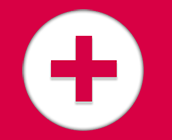For aspiring nurses, Cambridge College of Healthcare & Technology offers the Bachelor of Science in Nursing or BSN program. The BSN has three tracks to meet the needs of all types of students: Traditional (for those students with little medical knowledge), Bridge (LPN, Paramedic and Respiratory Therapist) and Accelerated (prior Bachelor or Master degree) preparing for a career as a nurse in many different healthcare fields by preparing you to take the NCLEX-RN exam, a requirement for licensing in any state. Meeting all industry standards, complete with hands-on experience, the BSN program through Cambridge was built for your success.
What is a BSN?
The BSN is for individuals wishing to enter the nursing field as registered nurses or RNs. This degree prepares you to take the NCLEX exam through hands-on training and coursework. The BSN is also required for students who wish to advance their career by achieving their Master of Science in Nursing or MSN.
How much does a nurse make with a BSN?
According to Pay Scale the median wage for people with a BSN degree is $92,000.00 but could vary depending upon their length of time in the field. For entry-level RNs, the medium wage is from $73,600.00 annually. For entry-level RNs, the pay will range from $19.96 to $35.28 per hour.
For those wishing to enhance their career as a nurse, those in the emergency room or operating room departments tend to make more per hour. Charge nurses or those nurses with more responsibility also earn a higher salary each year.
Is Getting a BSN worth it?
Yes. If you wish to become a Registered Nurse or RN, an ASN, BSN, or Diploma is required. You will need the coursework and hands-on experience to pass the NCLEX examination to earn your license as an RN. Usually, the BSN RN will have a higher salary and have the opportunity to enter a leadership position.
How do I get a BSN?
To receive a BSN, you will need to complete a BSN program. This program will include coursework such as anatomy, microbiology, nutrition, chemistry and nursing core classes. You will also be required to meet a certain number of required hours of clinical or simulation. Once you receive your BSN, you will be required to take and pass the NCLEX exam for RN licensing.
What classes are required for a BSN?
To obtain your BSN, you will need to complete various general education and nursing core courses, for example:
- Anatomy and Physiology
- Chemistry
- Microbiology
- Health Assessment (Traditional and Accelerated)
- Fundamentals (Traditional and Accelerated)
- Medical Surgical Nursing (All Tracks)
- Transition to RN Practice (Bridge only)
- Advanced Leadership (All Tracks)
- Research (Al Tracks)
You will complete hands-on training at area clinical healthcare facilities and simulation scenarios within the simulation lab to round out your curriculum. To learn more about our curriculum, visit our BSN program page online.
What jobs can you get with a BSN?
The BSN and its coursework will prepare you for entry into the healthcare field as an RN and leadership positions. As an RN, you can work in various locations such as hospitals, doctor’s offices and outpatient care centers. You can also work with insurance carriers and home health care services as an RN patient advocate or care manager. Some RNs work in colleges and universities as well as specialty hospitals for the elderly and cancer care.
Do hospitals hire nurses with a BSN?
Yes, hospitals regularly hire nurses with an BSN and an RN license. However, some hospitals are requiring new RNs to have their BSN degree for added knowledge and skill in the field.
Cambridge offers the highest quality curriculum to prepare you for the field. To learn more about the BSN program, reach out to Cambridge by calling 877-206-4279 today.



